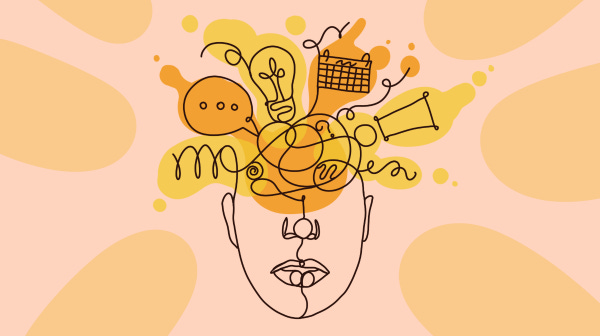Introduction to ADHD
Written by Aanya Deshpande
Attention deficit hyperactive disorder (ADHD) is a common mental health disorder that is more prominent in children. It combines constant problems, such as impulsivity, trouble paying attention, and hyperactivity. It is known to be a chronic disorder that affects academics, personal relationships, and daily functions. An estimated 8.4% of children and 2.5% of adults are affected by ADHD.
Scientists have not yet identified ADHD causes. Even though there is a suspected genetic aspect of it, there is no gene or gene combination that is affiliated with ADHD. There are 3 main types of ADHD; more inattentive, more hyperactive/impulsive, and inattentive and hyperactive combined.
The inattentive type refers to those with trouble staying on task, organization, and focusing. Common symptoms include often forgetting daily tasks, trouble organizing tasks and items, trouble with instructions, and disliking tasks with extra mental effort, such as homework or projects. The hyperactive type commonly fidgets and has lots of energy. This type also displays restlessness and talkative qualities. Symptoms include foot tapping, inability to stay seated, and fidgeting with objects. In children, hyperactive ADHD can result in running around, jumping, or interrupting someone. The combined type involved aspects from the 2 other types of ADHD.
Treatments for ADHD involve a mix of therapy and medical intervention. For pre-school students, the only FDA-approved medications are psychostimulants; amphetamines, and methylphenidate. Alpha agonists (clonidine and guanfacine) and atomoxetine are other FDA-approved treatments but kids can not take these. Newer FDA-approved medicines for ADHD include Jornay, which is taken at night, and takes effect in the morning. Xelstrym is another new treatment, which is an amphetamine patch. Another newer form is Mydayis, which is a mixed salt amphetamine product. Overall, ADHD affects many people, but there are many treatments for it. However, scientists still have not identified the main cause of ADHD.
References
https://www.mayoclinic.org/diseases-conditions/adhd/symptoms-causes/syc-20350889
https://www.psychiatry.org/patients-families/adhd/what-is adhd#:~:text=Attention%2Ddeficit%2F hyperactivity%20disorder%20(ADHD)%20is%20one%20of,in%20the%20moment%20without% 20thought).
Written by Aanya Deshpande from MEDILOQUY


